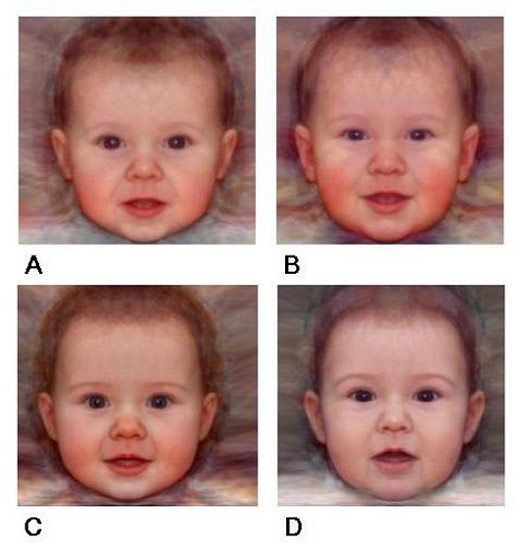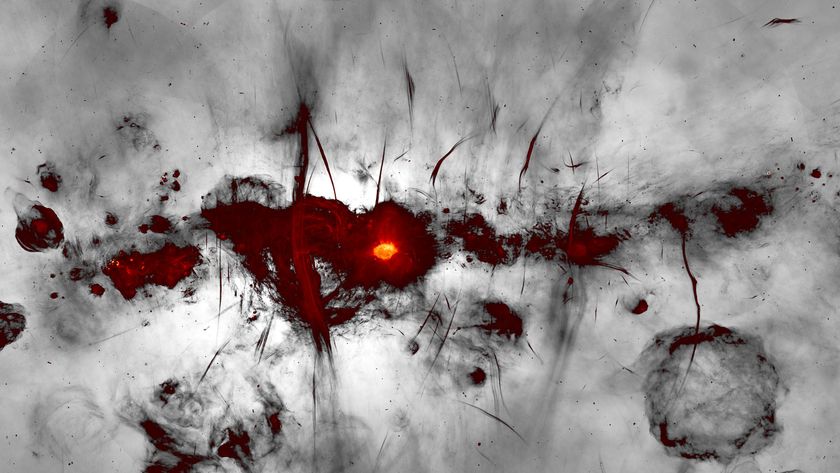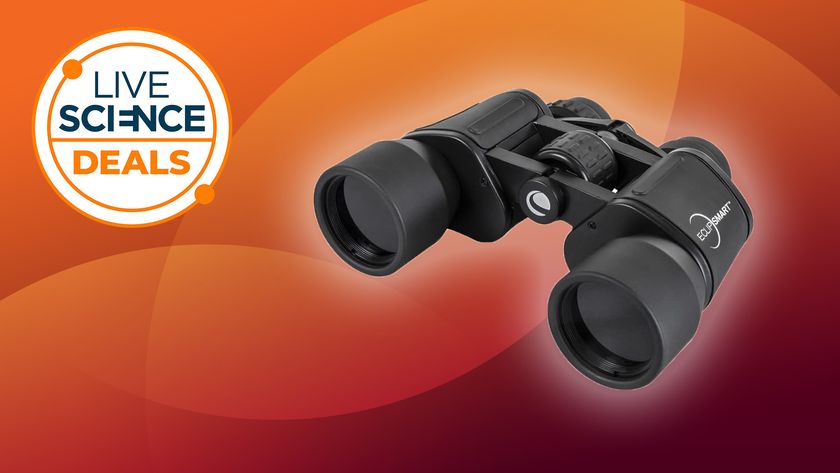Young Women Best at Spotting Cute Babies

Young women are much better than men of all ages at spotting a cute baby, finds a new study. The younger women beat older women at the task, too.
Past research has shown that the chubby cheeks, big eyes and oversized foreheads of infants can trigger child-caring behaviors in mothers. But what causes this link between cuddly-cute babies and mothers has been unknown.
Reiner Sprengelmeyer of the University of St. Andrews in Scotland noticed something new parents around the world have experienced: When his daughter was born, women showed much more interest in the baby than did men. "When my daughter was born, I saw that women react totally differently to babies than men," Sprengelmeyer said. "Women are much more keen to look at young babies than men."
Cute babies
So he and his colleagues set out to find the cause. They compiled images of male and female baby faces that had been rated prior to the study as cute and less cute, and used a computer program to come up with an average cute and average less-cute face for each gender.
Then, the researchers digitally changed the shapes of faces in the images, resulting in five images of each baby face along a continuum of less cute to more cute.
Study participants were shown pairs of images of the same baby face at different points along the cuteness continuum.
Sign up for the Live Science daily newsletter now
Get the world’s most fascinating discoveries delivered straight to your inbox.
Women of childbearing ages (between 19 and 51 years old) were four times better at picking out the cutest babies than men of all ages and compared with older women aged 53 to 60 who were considered past childbearing, Sprengelmeyer said.
Hormones involved
In similar experiments, the researchers tested pre- and post-menopausal women of a similar age (about 55) along with young women either taking or not taking oral contraceptives containing progesterone and estrogen.
Post-menopausal women showed poorer ability to choose the cutest baby face. In addition, women taking the pill were better than women not taking the pill at judging cuteness.
"These findings clearly indicate that sexual hormones modulate the ability to see small variations in cuteness," Sprengelmeyer said.
But why?
"We think the sensitivity to small changes in cuteness helps the mother focus on the baby, to concentrate on the baby if the baby needs it," Sprengelmeyer told LiveScience. "If the child is getting more and more mature, it is normally so that it is a bit less cute and this could free capacities of the mother to do other things. This is only speculation."
And babies who just aren't as cute as others when still young might not need as much attention either, he speculated. "It could be that the babies that don't look that cute are possibly more mature and don't need that much attention, and a cute-looking baby might be an indicator of needing much help and attention and care."
Next, he hopes to figure out how the findings could relate to postpartum depression that occurs in some women after delivering their babies. He suggests the ability to see cuteness in a baby face is impaired in women suffering from postpartum.
The research is published in the January issue of the journal Psychological Science.
- Baby News and Information
- Vote for the Cutest Animal Babies
- Why Are 'Mama' and 'Dada' a Baby's First Words?
Jeanna Bryner is managing editor of Scientific American. Previously she was editor in chief of Live Science and, prior to that, an editor at Scholastic's Science World magazine. Bryner has an English degree from Salisbury University, a master's degree in biogeochemistry and environmental sciences from the University of Maryland and a graduate science journalism degree from New York University. She has worked as a biologist in Florida, where she monitored wetlands and did field surveys for endangered species, including the gorgeous Florida Scrub Jay. She also received an ocean sciences journalism fellowship from the Woods Hole Oceanographic Institution. She is a firm believer that science is for everyone and that just about everything can be viewed through the lens of science.












